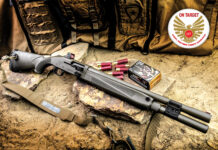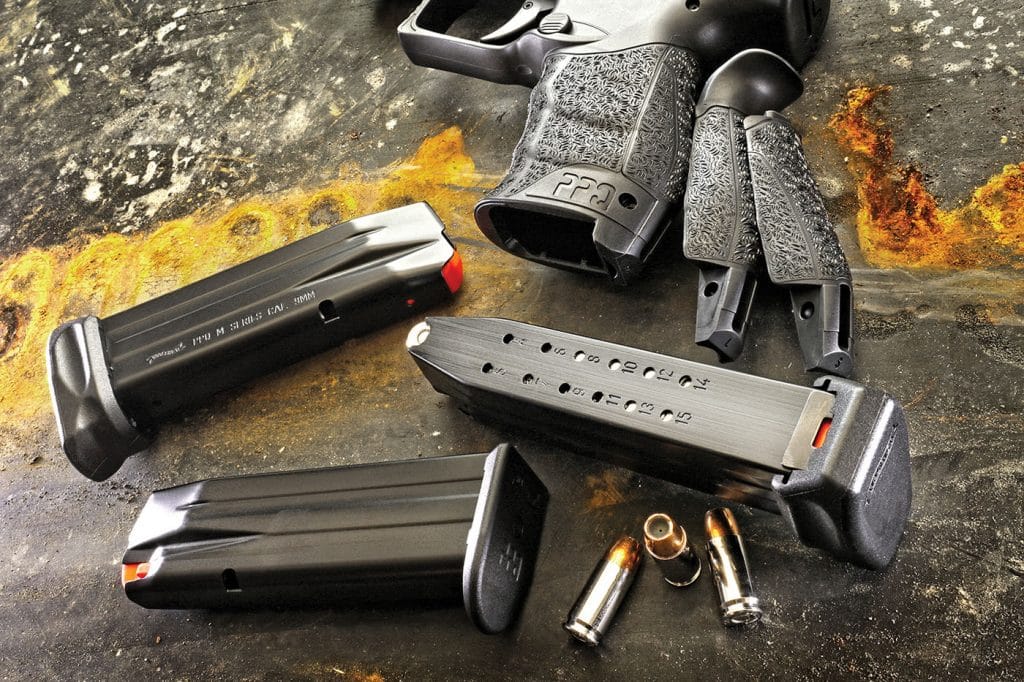
Lighting for proper PID (positive identification) was accomplished using Surefire’s new XH35 1,000 Lumen weapon light. Power levels can be switched between 300 and 1,000 lumens, and a strobe function is available but can be turned off. Designed for use with their MasterFire holsters, it was used, although primarily due to the suppressor. Few holsters exist today that accommodate a suppressor, especially over different pistols, making the MasterFire a pretty simple choice. See it at www.surefire.com
Range
Since the trigger is a big part of the PPQ’s appeal, let’s start there. Yep, it’s fantastic, plain and simple. Moving to the VP9 a few years back—always the best out of the box trigger until now—I must give the PPQ the nod, although slightly. Trigger pull is about the same, but the wider and flatter trigger seems to give it a more positive feel. The wall is easy to find and consistent. On occasions, with my hand out of position on the VP9, I will fail to activate the external trigger safety. That never happened with the Q4 Tac. It made for some very solid accuracy at 25 yards. My best group came from Doubletap’s Colt Defense 124-grain Match load. It has proven to be one of the most accurate 9mm pistol loads available, and continues to prove itself when accuracy is required. I was able to put 10 of 10 shots on a 6-inch round steel plate from offhand using every defensive load tested using the RMR (unsuppressed). Shooting from both static positions and on the move, it kept everything inside a fist’s diameter out to 15 yards. Moving through the shoot house with the suppressor, it was plenty quiet, with no change in accuracy. Heading out to 50 yards, it put ten rounds into about an eight inch circle, it only opened up to 10 or so inches at 100 yards. Using the RDS, the PPQ Q4 TAC is about as accurate as I could ever ask for.
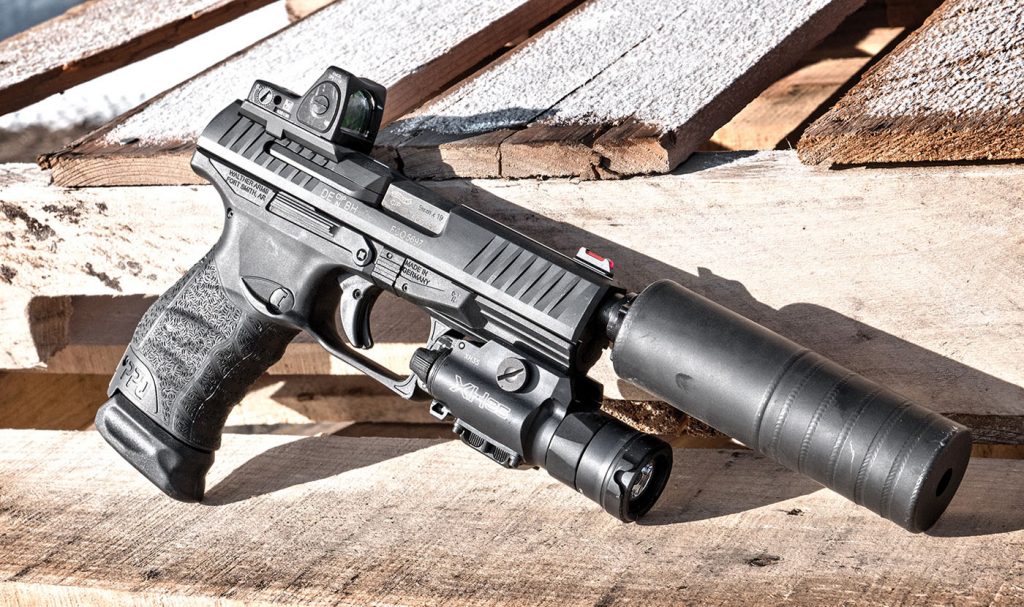
Function over a broad range of ammunition was uneventful—it never malfunctioned. It seemed to favor the hotter 115-grain loads for accuracy, but it ran them all. Doubletap’s 115-grain Tactical load using the Barnes TAC-XP was readably controllable even at 1,300 f.p.s., and was the top performer for accuracy in the tactical loads. Ergonomics of the PPQ Q4 TAC are excellent, providing a solid connection during rapid fire. Grip texture is just right for both bare and gloved hands. Fit to my hand was excellent, one of the best ever tested. Using a high-grip-to-bore axis makes it easy to stay accurate during rapid fire strings.
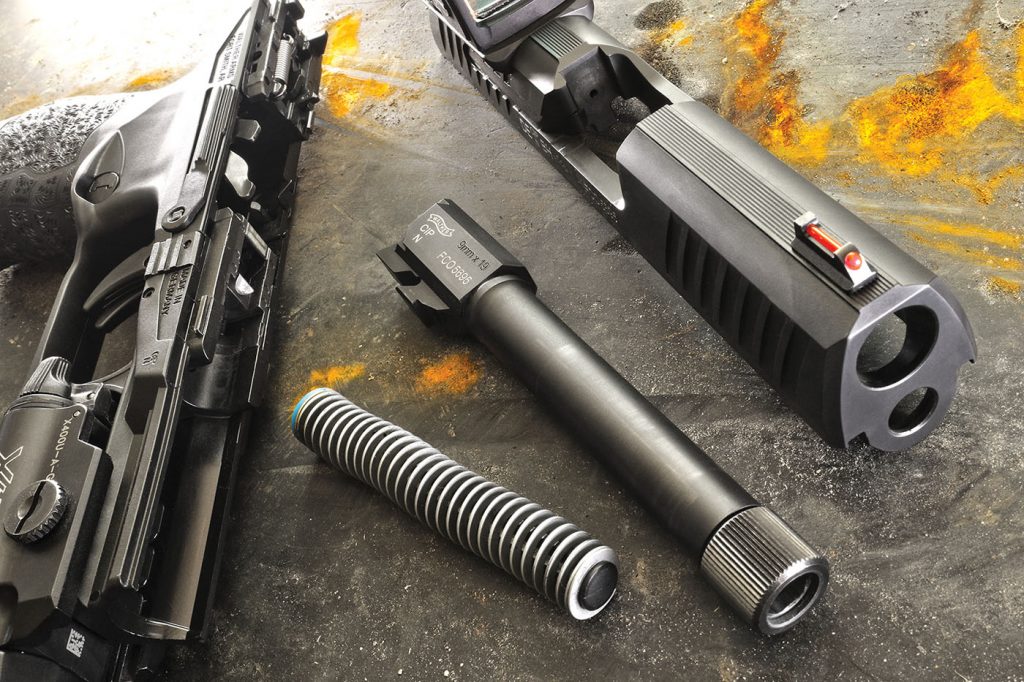
It takes a while to get used to the MasterFire holster, as the draw is more forward than up, but the XH35 locked in place nicely. It sits low enough to not interfere with the plate carrier, while keeping a shorter suppressor out of the way. Running suppressed through the house was pretty intuitive. Having used this setup before it, may not be ideal for overall use, but add a suppressor and an RDS and it is pretty slick. Locking to the light it is not weapon specific. Just about any full sized (4” barrel or longer) will work, with even some shorter pistols. Not something I would carry in the elements to be sure, but for specific missions it is pretty solid.
Considerations
Swapping out the iron sights for an RDS plate was really easy. The two screws used to secure plates to the pistol are the same for every plate, a very nice touch. Factory screws for the RDS also worked, again, very nice. The plate locks in place tightly with plenty of support front and back, along with a substantial dove-tail to prevent any shift in zero if things shoot loose. Moving between a Trijicon RMR, Leupold Delta Point and the LPA rear sight took a couple minutes. Using no Loctite, the RMR never shot loose over close to 1,000 rounds. It’s one of the best systems I’ve ever tested for RDS use.
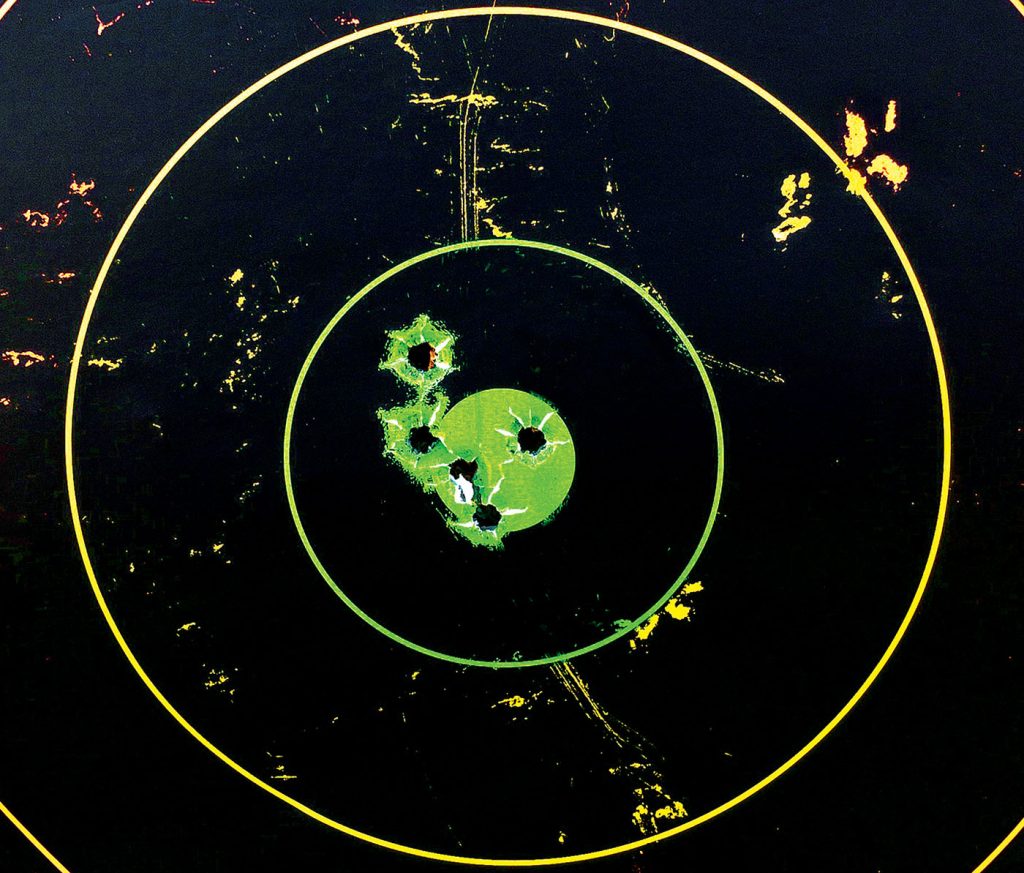
Add the RDS and you lose your rear sight. Not a big deal for some, huge for others, it is a bit of a controversy these days if it is a working pistol. You can still see the front sight and it was possible to use the rear of the RMR as a reference, but it’s not ideal. Big win here for the Leupold Delta Point, since you can add a rear sight. It worked great, the sight does not protrude past the rear of the slide, and you get true front and rear sight alignment. Impact is a tad high, so you need to adjust, but it’s there if you need it.



